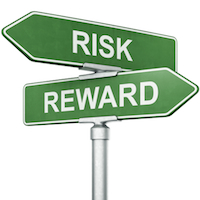
In the first of my true stories, a mutual friend asked me to provide some “pro bono” advice to a struggling clinical trial doctor. Because he said his resources were limited, he was looking for some self-help marketing ideas. I agreed to talk with him and his son over dinner, mainly as a favor. It didn’t go too well.
In the course of the conversation I suggested a number of strategies and tactics that have worked well for others. Regrettably, the doctor’s son—who knew nothing about healthcare marketing—kept challenging me, saying: “I’m skeptical about that.”
It’s reasonable to be uncertain about new ideas, but I came away from our dinner meeting with the clear impression that the doctor (and son) were simply afraid of “being sold.”
There was little or no cost attached to what I had suggested. They were ideas that could have helped their business, and I was only trying to be helpful. Nevertheless, the barrier to progress was a fearful attitude, one that kept them away from new opportunities.
More recently—now, about two years later—I ran into the same doctor at a social event. Perhaps not surprisingly, not much had changed. The practice continued to struggle. This time he is looking to sell the practice, so I offered to help by referring him to some people that I know with that particular area of expertise. I wasn’t “selling” anything; it was simply a helpful offer. But once again, he was afraid to let me help.
A fear of “being sold,” or is it a fear of taking a risk?
The second conversation—completely independent of the forgoing story—was with another doctor. Of course, we were talking about marketing, and how attitudes pave the road to opportunity. As it turns out, this second conversation revealed a lot about the first, and what he said contains a powerful marketing lesson in itself.
“I’ve learned that physicians—surgeons in particular—are risk-adverse in business,” he told me. “In fact, being risk adverse is the number one factor that holds back most doctors and keeps them from being successful. The tough part is having the courage to accept risks in order to reap the rewards in business.”
Unlike the first doctor whose business is still on the sidelines, the second doctor has grown his practice from a humble startup to now having several locations and most recently, his own freestanding Ambulatory Surgery Center (ASC).
The contrast in attitudes is a striking lesson in marketing; attitudes build bridges or barriers between you and growth opportunities. We’re not recommending needless buying or unwarranted risk-taking. But in business, doing nothing has a highly predictable, and completely unrewarding, outcome.
Conversely, as William Faulkner put it, “You cannot swim for new horizons until you have courage to lose sight of the shore.” Courage and determination make all the difference.
RELATED READING: See our previous posts: When Doctors Say They Want Marketing (But They Really Don’t) and Trump Wisdom: How Successful Doctors Play to Win.

